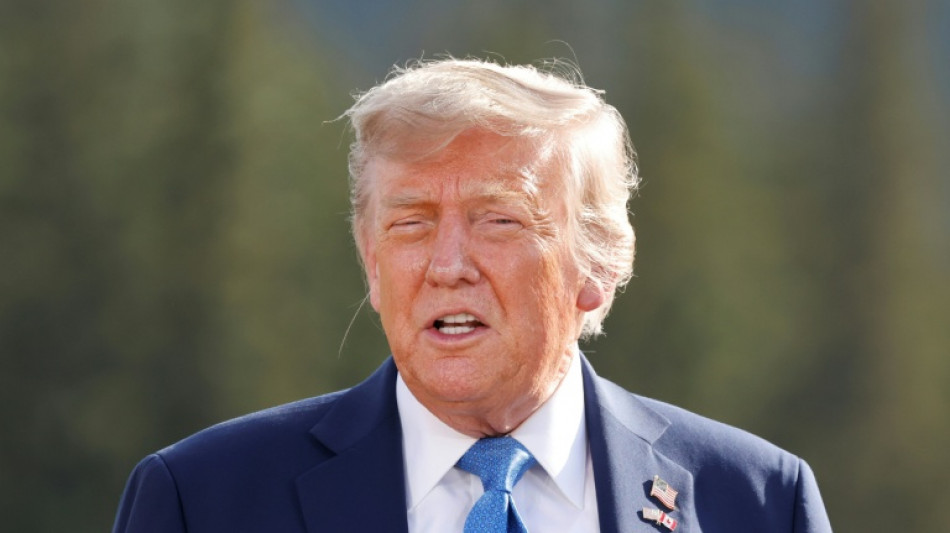

US forces still in 'defensive posture' in Mideast: White House
The White House insisted Monday evening that US forces remained in a "defensive" posture in the Middle East, despite a military buildup over the Israel-Iran war and a shock warning from President Donald Trump to evacuate Tehran.
Trump's brief warning on social media, without further details, raised speculation that the United States may be readying to join Israel in attacking Iran.
Those suspicions rose further after it was announced that Trump would be leaving a G7 summit in Canada and returning to the White House a day early over the mounting Middle East conflict.
But White House and Pentagon officials reiterated that US forces in the region remained in a "defensive" posture.
White House spokesperson Alex Pfeiffer, replying to a post on social media that claimed the United States was attacking in Iran, said: "This is not true."
"American forces are maintaining their defensive posture, and that has not changed," he said.
Pentagon Chief Pete Hegseth similarly told Fox News in a televised interview that "we are postured defensively in the region, to be strong, in pursuit of a peace deal, and we certainly hope that's what happens here."
Earlier in the day, Hegseth had announced that he had "directed the deployment of additional capabilities" over the weekend to the Middle East.
"Protecting US forces is our top priority and these deployments are intended to enhance our defensive posture in the region," he wrote on X.
His post on social media came after the aircraft carrier USS Nimitz was tracked leaving Southeast Asia on Monday, and amid reports that dozens of US military aircraft were heading across the Atlantic.
A US defense official, speaking on condition of anonymity, confirmed that Hegseth had ordered the Nimitz Carrier Strike Group to the Middle East, saying it was "to sustain our defensive posture and safeguard American personnel."
The movement of one of the world's largest warships came on day four of the escalating air war between Israel and Iran, with no end in sight despite international calls for de-escalation.
F.Pathak--MT




